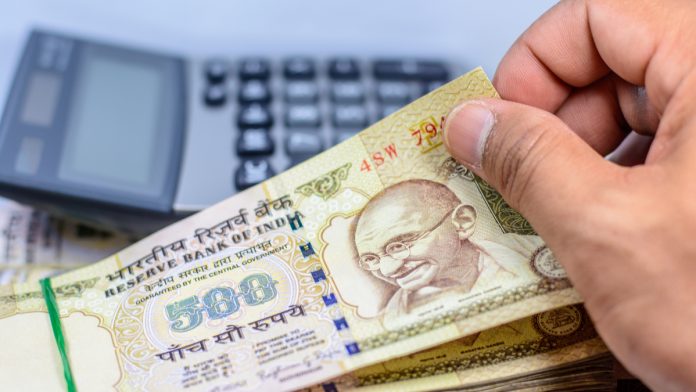GBP/INR is extending yesterday’s gains, but the pair is still not showing any clear direction. Currently, GBP/INR is trading at 93.163 as of 5:20 AM UTC.
Coronavirus Will Hurt Indian Economy
The Indian rupee has lost stamina since the government said that the economy had increased by 4.7% in the December quarter, which is the slowest growth rate in about seven years. Besides this, the rupee cannot deal with a general bearishness among trade-reliant economies amid the panic caused by the coronavirus epidemic.
Yesterday, the Organisation for Economic Cooperation and Development (OECD) cut its forecast for India’s gross domestic product (GDP) growth to 5.1% from a previous estimate of 6.2% for 2020, citing the impact of the coronvirus outbreak on the domestic and global economy. The agency said that the virus has direct or indirect repercussions on financial markets, consumer confidence, travel sector, and supply chains.
India’s recent labor market data was another punch for the rupee. The country’s unemployment rate increased to 7.78% last month, the highest since last October and up from 7.16% in January, according to the Centre for Monitoring Indian Economy (CMIE).
Unemployment in rural areas rose to 7.37% last month, from 5.97% in January, while in urban areas, it declined to 8.65% from 9.70%.
Pound Lifted by Housing Market Optimism
The sterling has its own troubles, but it could leverage positive housing market data and recover earlier losses against the rupee.
Yesterday, the Bank of England said that local banks had approved the highest number of mortgages in about four years in January, which suggests a growing consuming demand.
Lenders gave their permission for 70,888 mortgages in January, up from 67,930 in the last month of 2019.
Consumer confidence returned and hit an 18-month peak after UK Prime Minister Boris Johnson secured a major win in the December election.
A recent Reuters survey concluded that British house prices would continue to increase in the coming years amid fading Brexit uncertainty and easing monetary policy.
House prices will add 2.0% in 2020, 2.8% in 2021 and 3.1% in 2022, as per the medians of a poll carried out between February 17-28, involving 26 housing market experts.





